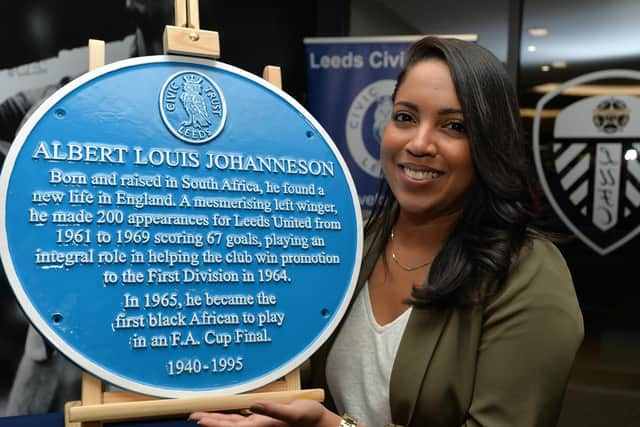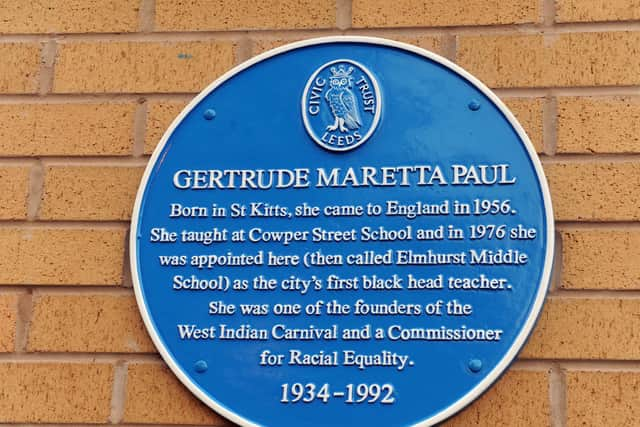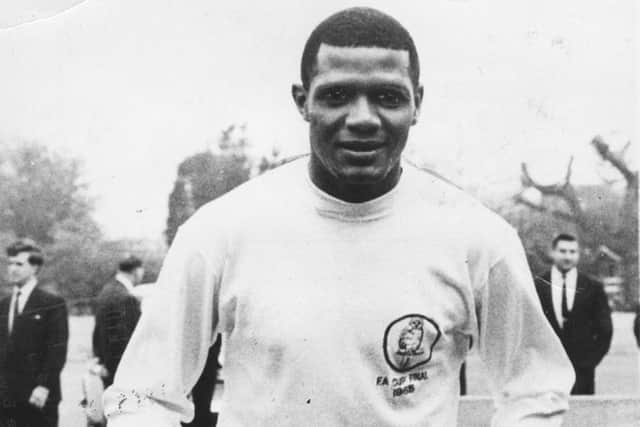Leeds Civic Trust accepts "need to change" after review of Blue Plaque scheme in wake of George Floyd murder
and live on Freeview channel 276
The subsequent international Black Lives Matter protests and global response to racial injustice illuminated the significance and symbolism of public statues, monuments, and plaques around the world and Leeds Civic Trust was concerned that some of the city’s current plaques may not reflect the values of today.
It appointed public relations and cultural heritage consultant, Susan Pitter, to review the 181 plaques that have been unveiled over the last 30 years.
Advertisement
Hide AdAdvertisement
Hide AdWhile she did not find that any of the current plaques should be removed, she did suggest that Leeds Civic Trust needed to have another review and take "an equally honest look at who it has chosen to celebrate and commemorate".


Key findings from the report also said that the criteria and nomination process should be revised to make them more accessible and transparent to members of the public; blue plaques should commemorate as well as celebrate, events, buildings and people; currently only two black people have been awarded blue plaques, they are Leeds’ first black headteacher, Gertrude Paul, and Leeds United’s Albert Johanneson, the first Black African to play in the FA Cup Final.
The review report added that efforts should be made to improve representation of significant figures from ethnic minority groups.
As part of the view, a survey was also undertaken, to which anyone could respond, and found that 81 per cent of the public think plaques should reflect the many communities of Leeds; an overwhelming majority of the public (68 per cent) want the people of Leeds to have greater say in the selection of plaque recipients; blue plaque nominations should be encouraged from under-represented groups.


Advertisement
Hide AdAdvertisement
Hide AdMs Pitter said: "If Leeds is to tell an honest story of how it became the great city it is today, it must take an equally honest look at who it has chosen to celebrate and commemorate. We know that the UK's cities including Leeds have benefited from Britain's enslavement of African people and colonial oppression. We know too that the presence and impact of marginalised communities who have shaped the Leeds we know are under-represented in the city narrative.
"I hope that the recommendations informed by the hard work of the review reference group, input from the public and other contributors will now help Leeds Civic Trust, through the blue plaques scheme, to play a central role in painting a truthful, inclusive picture of the city we love."
The Trustees of Leeds Civic Trust say they accept the recommendations of the report and will seek to implement the outcomes as soon as practical and that the report has provided the Trust with solid foundations to build upon, enabling the Blue Plaques scheme in Leeds to be more inclusive, representative and transparent.
Director Martin Hamilton said: “We are grateful for the work of Susan Pitter and her team. We have unveiled 181 blue plaques over the last 30 years, but if we are to ensure that the stories we reveal in the future about people, places and events that have shaped our city are to truly represent the city’s history, we need to change.


Advertisement
Hide AdAdvertisement
Hide Ad“I want to thank the many people who have nominated subjects for blue plaques since our scheme was established, our volunteers who support the process and our blue plaque sponsors who have funded them. As we move forward, we will redouble our efforts to reach out to the people of Leeds to seek their ideas about what and who we should celebrate with a Blue Plaque.”
Further outlining the next steps for Leeds Civic Trust, the organisation added that it will work to implement the recommendations of the report to ensure blue plaques in future will properly reflect the diverse history of the city; it will institute an on-going conversation about existing plaques, highlighting new facts as they emerge and matters of controversy through events, articles and discussion; it will be responsive to questions about the accuracy and suitability of any of the city’s blue plaques; it is once again accepting nominations for blue plaques with new criteria designed to be more transparent and open; it will be actively seeking nominations that tell important stories about people, places and events that are currently under-represented through the plaques scheme; it will also commit to publishing all plaque nominations received including reasons for rejection and a list of “plaques in the pipeline”.
